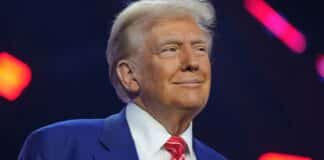China’s rubber-stamp legislature, the National People’s Congress (NPC), concluded its ten-day annual conference in Beijing on Tuesday, featuring bold promises from Communist Party leaders to boost consumer spending, revive the struggling economy, and challenge the United States in a trade war using artificial intelligence (AI) as a strategic advantage.
The NPC, largely a ceremonial body that rubber-stamps decisions made by top Communist leaders, provided insights into dictator Xi Jinping’s priorities. Among them was the ongoing struggle to address China’s economic slowdown, particularly low consumer spending. Premier Li Qiang pledged massive domestic stimulus spending and an “appropriately accommodative monetary policy” but failed to specify funding sources, especially amid escalating trade tensions with the United States and Europe.
One proposal floated at the NPC suggested reducing the standard work week to boost consumer spending, an idea with historical precedent. China cut its work week from 48 to 40 hours in 1995, which led to increased consumption, though much of that increase was in alcohol sales.
The NPC also showcased China’s increasing reliance on AI to drive economic growth, particularly following the debut of DeepSeek, an AI system developed at a fraction of the cost of its Western competitors. Despite concerns over its surveillance-heavy features and censorship, DeepSeek has fueled explosive investment interest, driving up the Hang Seng index by over 40% since its launch. However, analysts warn of an AI bubble forming due to a lack of clear monetization strategies and U.S. restrictions on high-end chip exports.
China’s AI advantage remains strongest in surveillance technology, an area where ethical concerns have not hindered development. The country has become a leading exporter of AI-enhanced monitoring systems, which have been deployed domestically against Tibetans, Uyghurs, and other minority groups, and marketed to authoritarian regimes worldwide.
The NPC also emphasized military expansion and aggressive rhetoric toward Taiwan. While delegates spoke of “reconciliation” with Taiwan, China simultaneously announced another year of increased defense spending, marking its fourth consecutive year of military budget growth exceeding 7%. NPC discussions highlighted China’s success in suppressing Tibetan and Uyghur opposition, portraying Communist ideology as the unifying force for national stability.
As China ramps up AI investment, military spending, and economic stimulus, its leaders remain locked in a precarious balancing act between technological ambition, trade war pressures, and domestic economic uncertainty.






